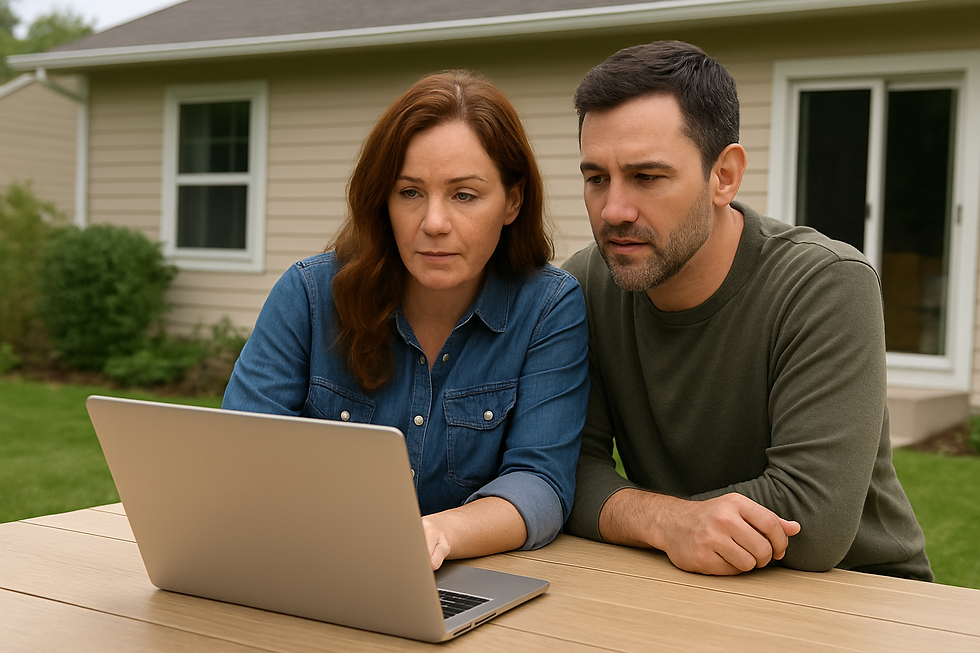Commercial Roofing Services You Can Trust
- Office Email
- Oct 6
- 4 min read
When it comes to protecting your commercial property, the roof plays a critical role. A strong, durable roof safeguards your investment from weather damage, improves energy efficiency, and enhances the overall appearance of your building. Choosing the right business roofing services is essential to ensure your roof performs well for years to come. This article explores key aspects of commercial roofing, helping you make informed decisions about your roofing needs.
Why Quality Business Roofing Services Matter
Selecting professional business roofing services can save you time, money, and stress. Commercial roofs face unique challenges compared to residential roofs. They cover larger areas, often have flat or low-slope designs, and must withstand heavy foot traffic and harsh weather conditions.
Benefits of hiring expert business roofing services include:
Expertise in commercial roofing materials: Professionals understand which materials work best for different types of commercial buildings, such as TPO, EPDM, metal, or built-up roofing.
Proper installation techniques: Correct installation prevents leaks, improves durability, and extends the roof’s lifespan.
Compliance with building codes: Licensed contractors ensure your roof meets local regulations and safety standards.
Efficient project management: Experienced teams complete projects on time and within budget.
Warranty and maintenance plans: Reliable companies offer warranties and ongoing maintenance to protect your investment.
Investing in quality business roofing services means fewer repairs, less downtime, and a safer environment for your employees and customers.

Types of Commercial Roofing Systems
Understanding the different types of commercial roofing systems helps you choose the best option for your building’s needs and budget. Here are some common commercial roofing types:
1. Thermoplastic Olefin (TPO) Roofing
TPO is a popular single-ply roofing membrane known for its energy efficiency and heat-reflective properties. It is lightweight, resistant to UV rays, and easy to install. TPO roofs are ideal for flat or low-slope commercial buildings.
2. Ethylene Propylene Diene Monomer (EPDM) Roofing
EPDM is a durable rubber roofing membrane that offers excellent weather resistance. It is cost-effective and easy to repair, making it a common choice for commercial roofs.
3. Built-Up Roofing (BUR)
Built-up roofing consists of multiple layers of bitumen and reinforcing fabrics. It provides excellent waterproofing and durability but can be heavier and more labor-intensive to install.
4. Metal Roofing
Metal roofs are long-lasting, fire-resistant, and energy-efficient. They come in various styles and materials, such as steel, aluminum, and copper. Metal roofing is suitable for commercial buildings that require a strong, low-maintenance roof.
5. Modified Bitumen Roofing
This roofing system uses asphalt combined with modifiers to improve flexibility and durability. It is often installed in layers and is suitable for flat or low-slope roofs.
Choosing the right roofing system depends on your building’s design, climate, and budget. Consulting with a professional roofing contractor can help you make the best choice.

How to Estimate Commercial Roofing Jobs?
Estimating a commercial roofing job accurately is crucial for budgeting and project planning. Here are the key steps involved in estimating:
1. Roof Inspection and Measurement
A thorough inspection identifies the roof’s condition, existing damage, and any structural issues. Accurate measurements of the roof’s surface area are essential for calculating material quantities.
2. Material Selection
Choose the roofing materials based on durability, cost, and suitability for your building. Prices vary widely depending on the type of roofing system.
3. Labor Costs
Labor costs depend on the complexity of the job, roof height, and local wage rates. Experienced contractors provide detailed labor estimates.
4. Additional Expenses
Include costs for permits, disposal of old roofing materials, equipment rental, and any necessary repairs to the roof deck or insulation.
5. Contingency Budget
Set aside a contingency fund (usually 10-15%) to cover unexpected issues that may arise during the project.
6. Final Quote
Combine all costs to prepare a comprehensive quote. Transparent estimates help avoid surprises and build trust between you and the roofing contractor.
Using these steps, you can better understand the financial scope of your commercial roofing project and select a contractor who offers fair pricing.

Maintenance Tips for Long-Lasting Commercial Roofs
Regular maintenance is key to extending the life of your commercial roof and preventing costly repairs. Here are some practical maintenance tips:
Schedule bi-annual inspections: Check your roof in spring and fall to identify damage early.
Clear debris: Remove leaves, branches, and dirt that can trap moisture and cause deterioration.
Check for leaks: Inspect seams, flashing, and penetrations for signs of water intrusion.
Maintain drainage systems: Ensure gutters and downspouts are clear to prevent water pooling.
Repair minor damage promptly: Fix small cracks, blisters, or punctures before they worsen.
Trim overhanging trees: Prevent branches from damaging the roof surface.
Document maintenance activities: Keep records to support warranty claims and track roof condition.
By following these tips, you can protect your investment and avoid unexpected roofing emergencies.
Choosing the Right Commercial Roofing Contractor
Selecting a trustworthy contractor is as important as choosing the right roofing materials. Here are some tips to find a reliable commercial roofing service provider:
Check credentials: Verify licenses, insurance, and certifications.
Look for experience: Choose contractors with a proven track record in commercial roofing.
Read reviews and ask for references: Customer feedback provides insight into quality and professionalism.
Request detailed proposals: Compare scope of work, materials, timelines, and costs.
Ask about warranties: Ensure the contractor offers warranties on both materials and workmanship.
Evaluate communication: Choose a contractor who is responsive and transparent.
A reputable contractor will guide you through the entire process, from initial consultation to project completion, ensuring your roof meets your expectations.
For trusted and professional commercial roofing services, consider working with experts who prioritize quality and customer satisfaction.
Investing in professional business roofing services ensures your commercial property remains protected and efficient. With the right materials, expert installation, and regular maintenance, your roof will serve your business well for many years. Take the time to research, plan, and partner with a reliable roofing contractor to secure the best results for your commercial roofing project.







Comments